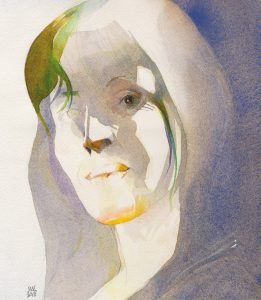Lorrie Moore at the NYRB:

The concentrated, flinty nature of Cusk’s mind (a fellow admirer and I often refer to her, in pseudo-jazz-intimacy, simply as “Rachel,” though we have never met her and haven’t the flimsiest intention of trying to do so) ensures that authorial intelligence is burned into the syntax of every line, despite the cloaked narrator in the foreground. Even if they technically belong to fictional others, the voices, with their stories of familial upheaval, traps, escapes to dubious safety, or dull drift, are chosen and arranged by Cusk as both reflections and arguments concerning life’s dissolutions and reconstructions. What runs through her trilogy is a coolly abstracted consciousness organizing all the stories—one that is alert to the mendacity and (as the trilogy suggests, if they are any good) the cruelty in stories (in a culture that glibly claims to value them). It is like reading the best kind of philosophy—steely, searching, brisk.
more here.
